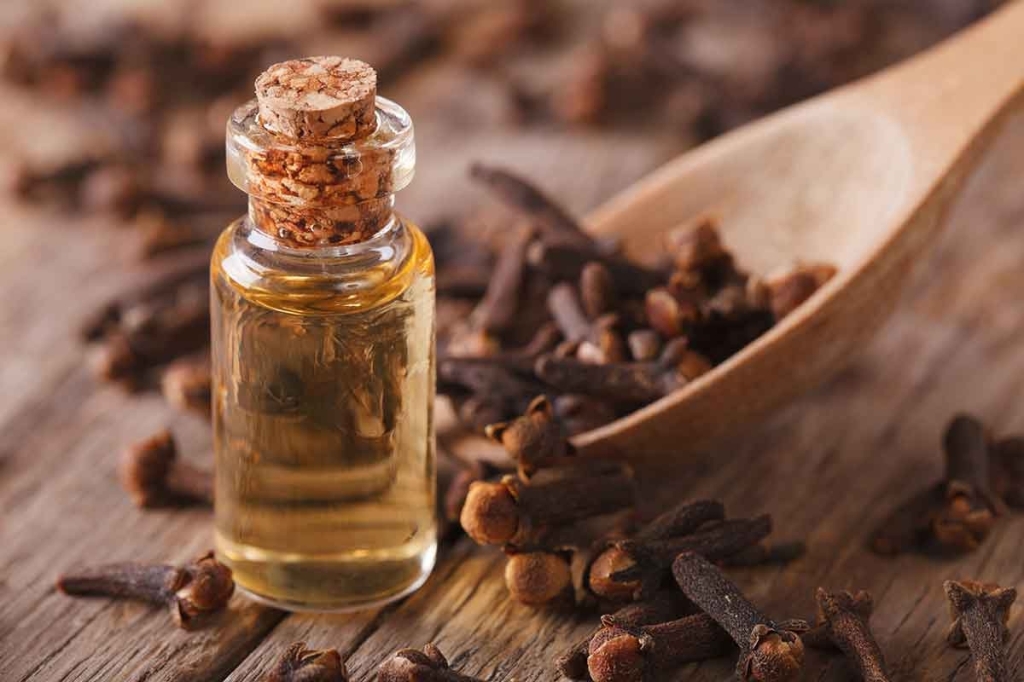Healing with Clove Oil
Penetrating, sweet and spicy, clove oil is warming and stimulating to the mind and body. Clove tress are cultivated throughout the tropics and the dried flower buds are used to spice foods. A potent essential oil is distilled from the buds, which is highly antiseptic and analgesic. You can use close oil to treat toothache, but you should always use it with caution. It can, even in low concentrations, irritate the skin and mucous membrane.
The warming, antiseptic action of close makes it a valuable oil to use in the winter to combat infection.
Beneficial Vapours
You can best benefit from clove oils infection fighting properties by using it in a stream inhalation rather than in massage blends. Clove strengthens the memory and, blended with rosemary, it enhances concentration and lifts depression. It is also a good insect repellant and, combined with lemon and eucalyptus oils, it can deter mosquitoes.
Active Ingredients of Clove Oil
The principle component of close is eugenol, a phenol. This makes up between 80-90 per cent of th oil and provides its characterises spicy odour.
Phenols – Phenols are very reactive compounds. They act as stimulants to be nervous system and are highly antiseptic and antibacterial. Phenols are also caustic, however. They can cause irritation to the skin and mucous membrane and can be toxic to the liver.
You must always dilute your clove oil as it is very potent and can cause irritation. Clove oil contains eugenol, an infection fighting phenol.
Your Clove Oil – Your clove oil ready blended for you in base oil, in a 1 percent solution. Do not use close oil if you are pregnancy and always person a small patch test as it can cause skin or mucous membrane irritation or even dermatitis. Not to be used in a room vaporiser.
Reference : https://i.pinimg.com/736x/ff/6a/ae/ff6aae494ad08e8c48148469dd946b0e.jpg






Leave a comment